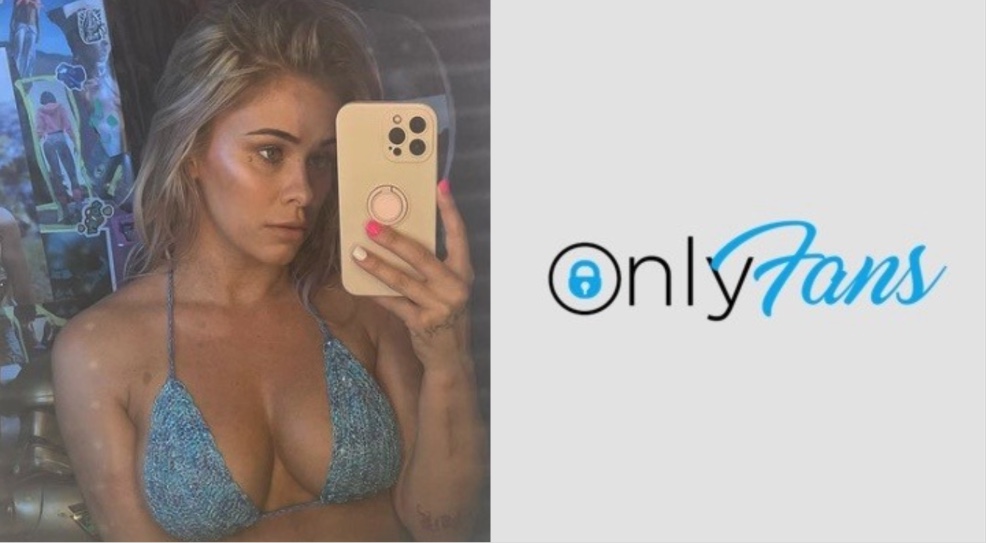Paige VanZant OnlyFans Leak: What You Need To Know | MMA
Could a leaked online presence forever alter the trajectory of a celebrated athlete's public image? Paige VanZant, the celebrated mixed martial arts (MMA) star, finds herself navigating the treacherous waters of the internet after a recent development threatens to overshadow her athletic achievements.
The digital landscape, once a tool for connection and self-expression, has morphed into a complex arena where privacy is often a casualty. VanZant, a former UFC fighter, has made headlines not for her prowess in the octagon, but for the alleged leak of content from her OnlyFans account. This platform, often associated with adult entertainment, was used by VanZant to share exclusive content with her fans, a move intended to diversify her income streams and further cultivate her public persona. The situation, however, took a sharp turn when portions of her private and exclusive material were reportedly leaked online, triggering a flurry of discussion and raising profound questions about online privacy and the potential exploitation of personal content.
| Category | Details |
|---|---|
| Full Name | Paige VanZant |
| Nickname | 12 Gauge |
| Date of Birth | March 26, 1994 |
| Place of Birth | Dundee, Oregon, USA |
| Nationality | American |
| Height | 5 ft 4 in (163 cm) |
| Weight | 125 lb (57 kg; 8 st 13 lb) |
| MMA Record | 8-5-0 (Win-Loss-Draw) |
| Years Active | 2012present |
| Promotions | UFC, BKFC |
| Boxing Record | 0-2-0 (Win-Loss-Draw) |
| BKFC Record | 2-1-0 (Win-Loss-Draw) |
| Notable Achievements | Former UFC fighter, BKFC star, Dancing with the Stars contestant |
| Other Ventures | OnlyFans, social media influencer |
| Reference | UFC Official Profile |
The narrative surrounding VanZant's venture into OnlyFans, and the subsequent leak, is multifaceted. It highlights the evolving landscape of celebrity and income generation. For athletes, the traditional revenue streams of fight purses, endorsements, and merchandise sales are increasingly being supplemented by digital platforms. OnlyFans, with its focus on direct creator-to-fan interaction, offers a seemingly attractive alternative. It allows individuals to monetize their image and content directly, fostering a more intimate relationship with their audience. This, however, comes with inherent risks, as the recent events demonstrate.
The unauthorized dissemination of private content has brought into sharp focus the vulnerability of public figures in the digital age. The leak of VanZant's content has ignited discussions on the ethics of sharing private material without consent, the responsibilities of online platforms in protecting their users, and the potential for reputational damage. It also underscores the potential for exploitation, with the possibility of content being used for malicious purposes, such as blackmail or harassment.
The repercussions of such leaks can be far-reaching, impacting an individual's personal life, professional opportunities, and mental well-being. VanZant's situation serves as a cautionary tale, reminding us of the importance of safeguarding one's online presence and the potential consequences of digital indiscretions. The immediate aftermath of the leak involves a scramble to contain the damage, with legal and public relations strategies taking center stage. Damage control becomes paramount, with the focus shifting to mitigating the negative impact and rebuilding trust with fans and potential sponsors.
The impact on VanZant's career remains to be seen. While the incident could damage her existing endorsements or future opportunities in MMA or other ventures, it could also galvanize her fan base. Some fans might rally around her, offering support and understanding. The response of sponsors and potential collaborators will be crucial. Their decisions will hinge on their assessment of the public's reaction and the long-term implications for their brands. How VanZant chooses to address the situation publicly will also play a significant role in shaping the narrative.
The incident also highlights the evolving nature of the relationship between athletes and their fans. The rise of social media has blurred the lines between public and private lives, creating a culture of increased accessibility and transparency. While this can foster a sense of connection and authenticity, it also exposes athletes to greater scrutiny and potential vulnerability. The public often feels entitled to access the personal lives of celebrities, but this expectation comes with significant risks, as demonstrated in this case.
Moreover, this incident draws attention to the complexities surrounding content creation and distribution. The ease with which content can be created, shared, and replicated online has created a digital ecosystem where control is often challenging to maintain. Copyright infringement, unauthorized use, and the spread of misinformation are pervasive problems. The situation experienced by VanZant underscores the need for more robust digital security measures, both for individuals and platforms, and a stronger legal framework to protect personal content.
Beyond the immediate repercussions, the case prompts a broader discussion about online privacy and the ethics of online behavior. The desire for quick clicks and the allure of gossip can sometimes overshadow ethical considerations, leading to the unauthorized sharing of sensitive information. The digital community's response to the leak will serve as a barometer of its values, and the choices people make about consuming and sharing such content will reflect on their moral compass.
VanZant's situation also casts a spotlight on the potential for double standards in how women are treated in the digital realm. Women in the public eye often face increased scrutiny and judgment, and they may be held to different standards than their male counterparts. The narrative surrounding VanZant could be shaped by gender biases, with her choices and actions being interpreted through a particular lens.
The leak has also sparked debate about the role of OnlyFans and similar platforms. While these platforms can provide creators with a means to monetize their content and connect with fans, they also present risks. The content hosted on these platforms can be susceptible to leaks and other forms of exploitation. The platforms themselves bear some responsibility for protecting their users and ensuring the security of their content. They have a moral obligation to implement effective safeguards and to respond swiftly when breaches occur.
VanZant, a seasoned competitor in the highly competitive world of MMA, has already proven her resilience. Throughout her career, she has demonstrated a capacity to overcome obstacles and bounce back from setbacks. The public will be watching closely to see how she chooses to navigate this new challenge. Her response and the narrative surrounding it will shape her legacy. It will also influence the conversation about online privacy, the exploitation of personal content, and the challenges faced by public figures in the digital age.
The entire situation with Paige VanZant provides several questions: Will this situation impact her future in the sport? How will she navigate this challenge to ensure that her personal brand isnt permanently damaged? Will this become a landmark case that forces digital platforms to reassess their security protocols? The answers remain to be seen, but the story of Paige VanZants experience in the digital arena will undoubtedly be one that is closely followed and discussed for some time to come.
Her career has been marked by both success and controversy, and this incident adds another layer to her public persona. One thing is certain: the digital landscape is constantly evolving. And the need for vigilance, both from individuals and platform providers, has never been greater. The challenges, complexities, and potential dangers of the online world are real and present, and they demand careful consideration and proactive measures. This will require a collaborative effort. One with athletes, influencers, platforms, and consumers alike to ensure a safer, more secure, and more respectful digital environment for all.
Paige VanZant's journey exemplifies the precarious dance between personal freedom and public scrutiny in the digital age. It serves as a potent reminder that the digital world, though offering unprecedented opportunities for connection and self-expression, demands a heightened awareness of privacy, security, and the potential for unforeseen consequences. The lessons learned from this experience will likely inform future conversations about online safety, content creation, and the ever-evolving relationship between public figures and their audience.



